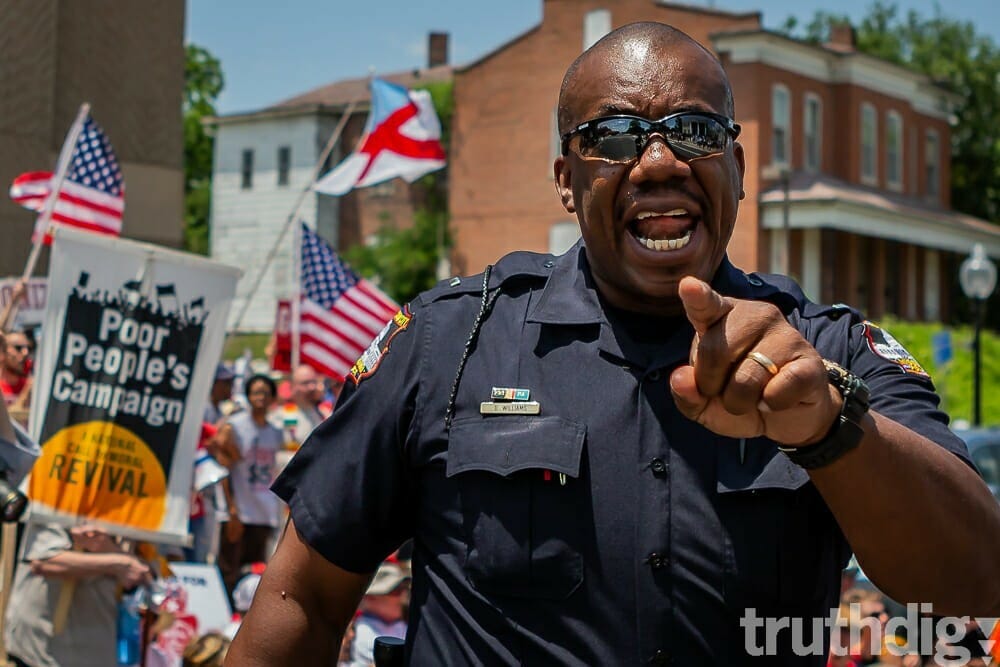
The Poor People’s Campaign: Everybody’s Got a Right to Live (Audio Photo Essay)
Michael Nigro / Truthdig June 14, 2018 21 photos-

As part of the Poor People’s Campaign, more than 400 people from across Missouri traveled Monday to Jefferson City, the state capital. Among them were fast-food workers in the Fight for $15 movement, as well as union members, clergy and advocates. Arrests were made at 35 state capitals across the country that day. (Michael Nigro / Truthdig)
-
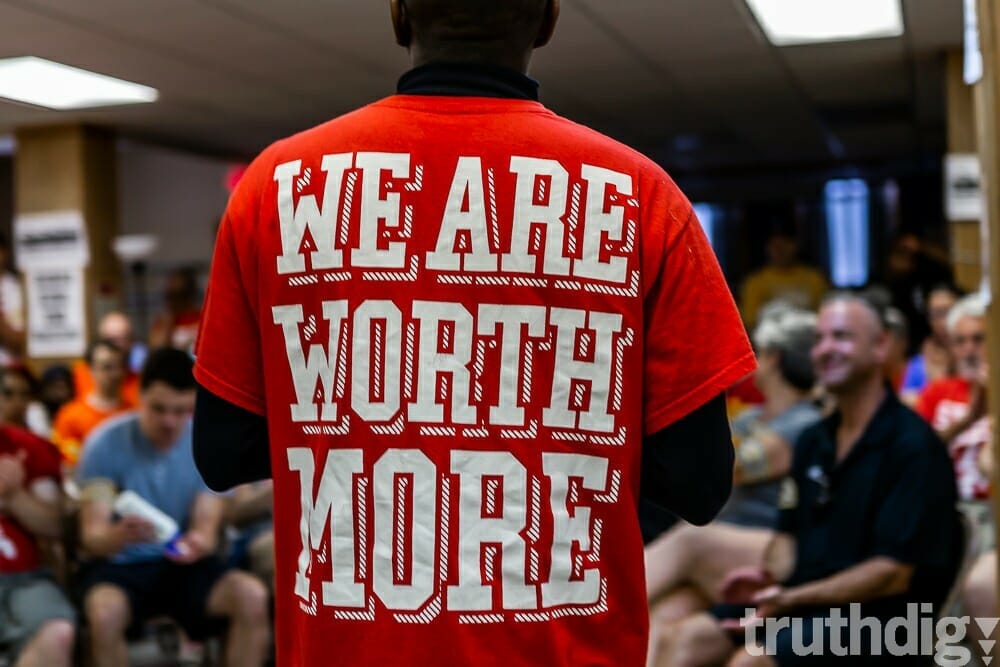
The week’s Poor People’s Campaign theme is “Everybody’s got a Right to Live: Education, Living Wages, Jobs, Income and Housing.” (Michael Nigro / Truthdig)
-
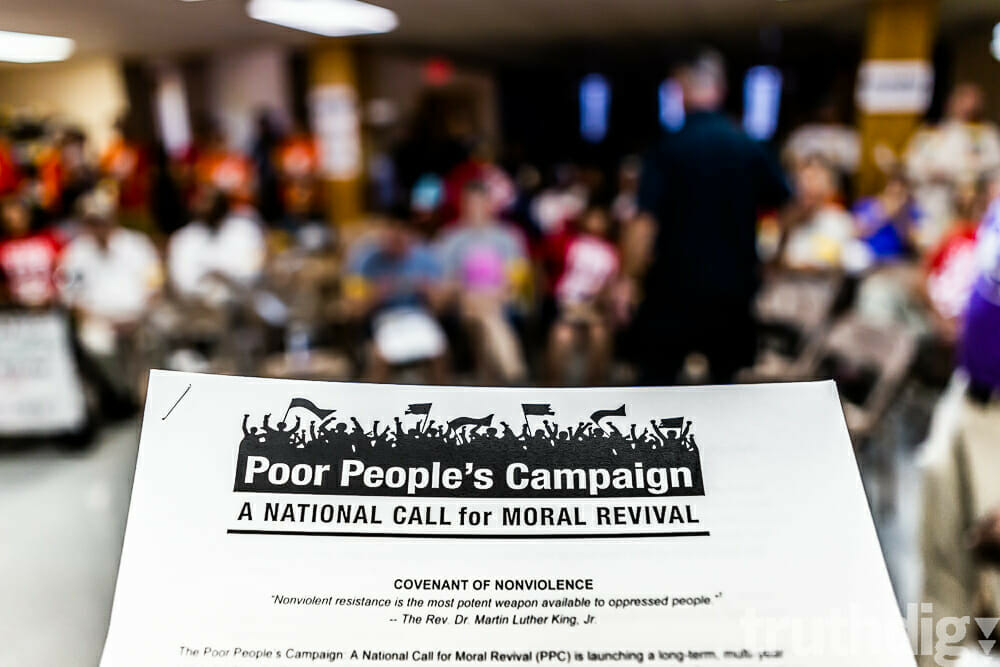
All who wish to participate in a Poor People’s Campaign action that could result in arrest must sign a covenant of nonviolence during the training for civil disobedience. In addition to blocking streets, another strategy protesters employ is attempting to occupy a room within a government office building. (Michael Nigro / Truthdig)
-
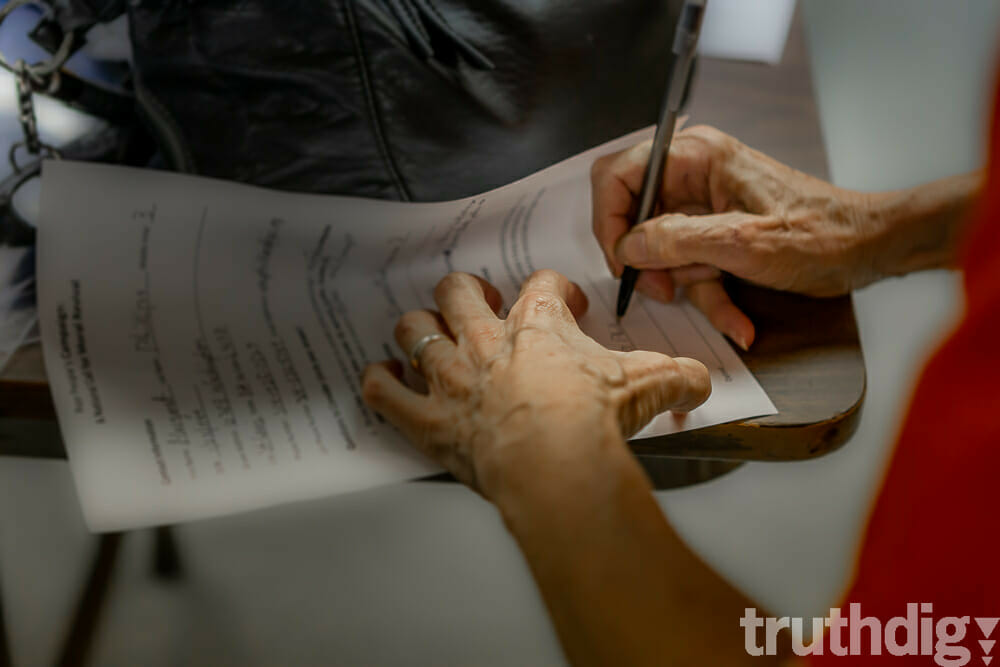
Prior to Monday’s march, those risking arrest gave their contact information to the pro bono lawyers who observed the action and kept track of all who were arrested. (Michael Nigro / Truthdig)
-
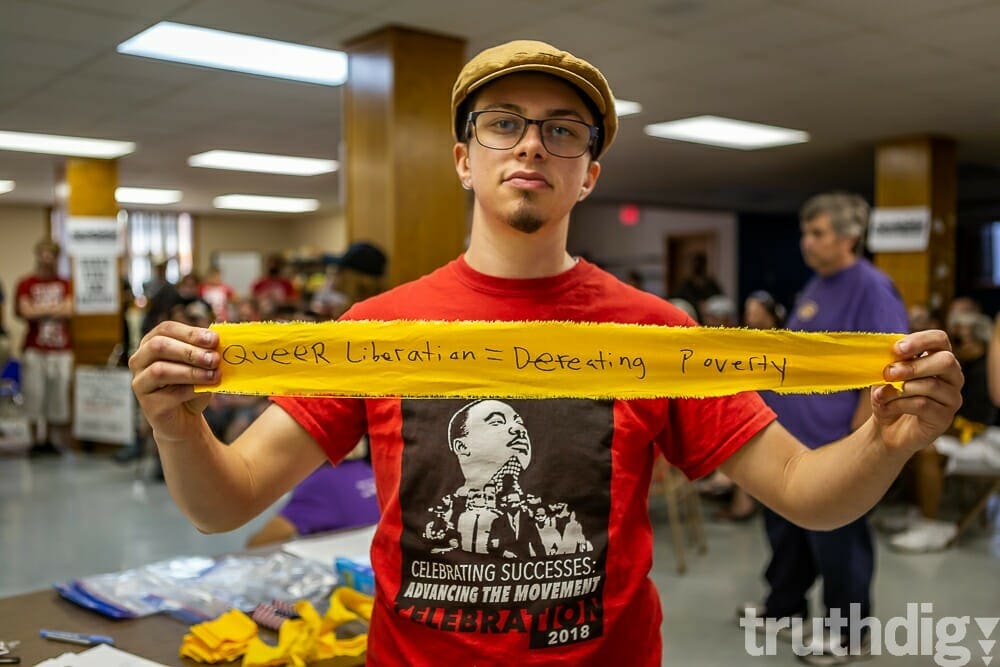
Personalized resistance. (Michael Nigro / Truthdig)
-
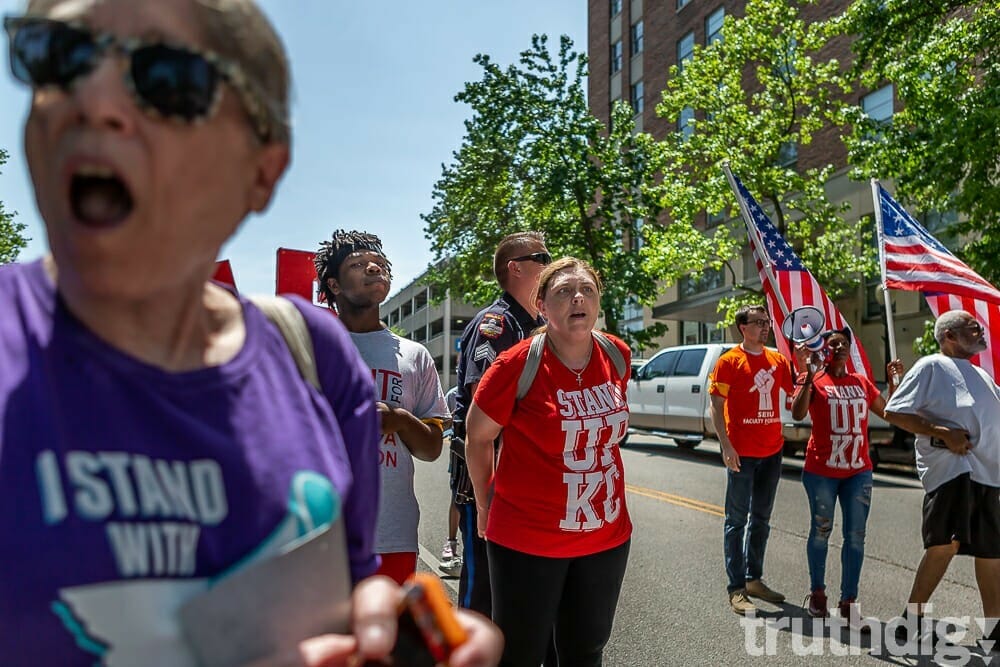
Shocked and in cuffs. The action in Jefferson City involved blocking the street in front of the Missouri Chamber of Commerce, a strategy campaign activists have been using in capital cities all over the country. In several prior instances, police blocked off roads and did not arrest anyone, but that was not the case Monday. Moments after demonstrators walked into the empty streets, police cruisers cut off the march, and an officer arrested one person. (Michael Nigro / Truthdig)
-
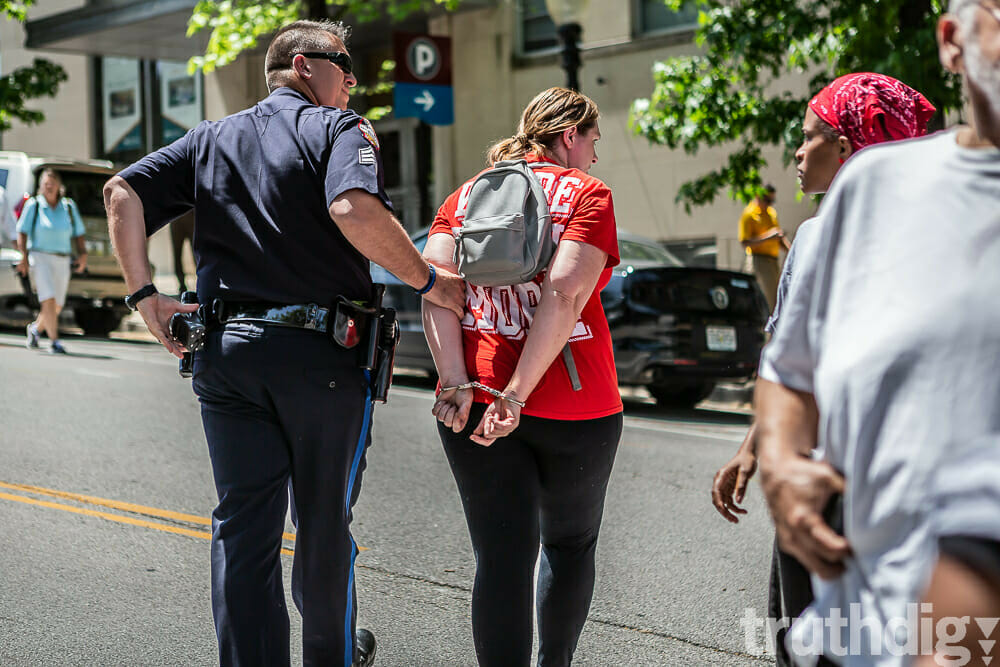
The first arrest of a protester. There would be 76 more. (Michael Nigro / Truthdig)</small
-
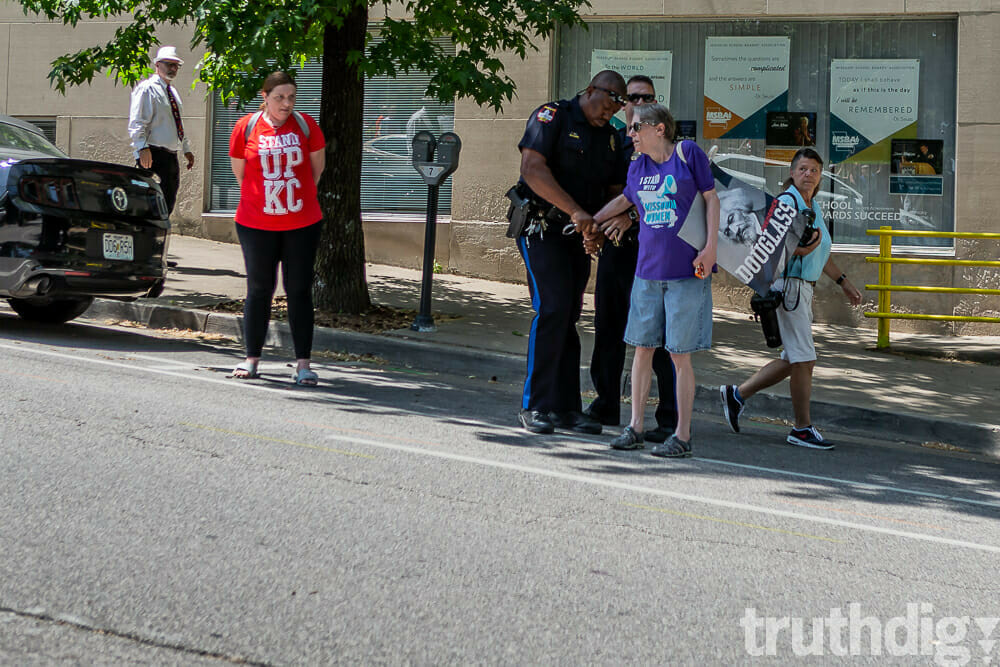
The woman in purple was distraught that her colleague had been arrested and began filming the encounter. Officer D. Williams, who would later arrest me, approached and arrested her, too. (Michael Nigro / Truthdig)
-
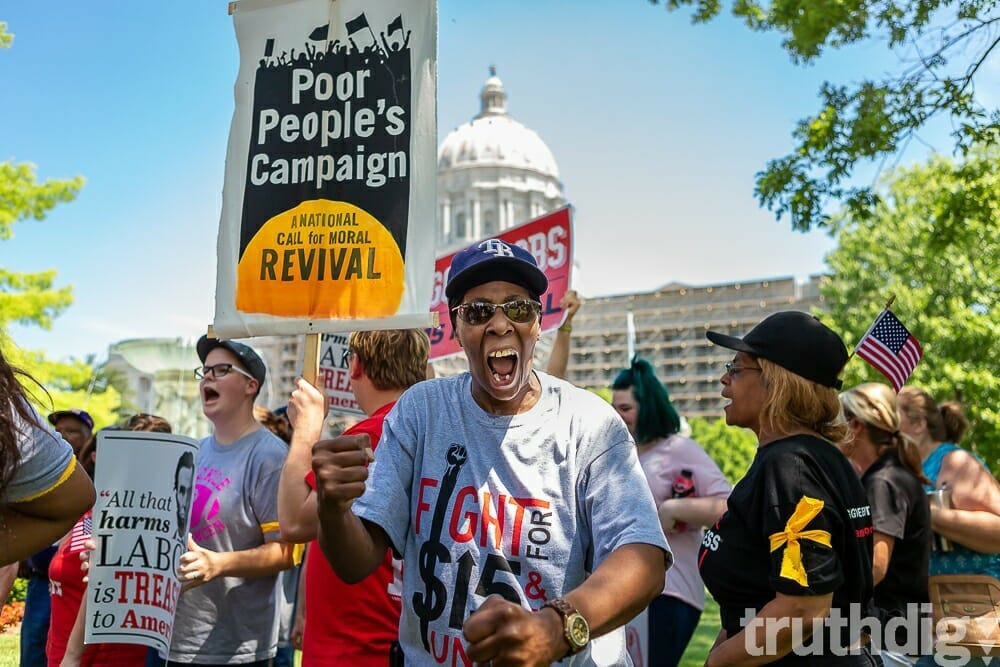
Marchers gather outside the Missouri Capitol. (Michael Nigro / Truthdig)
-
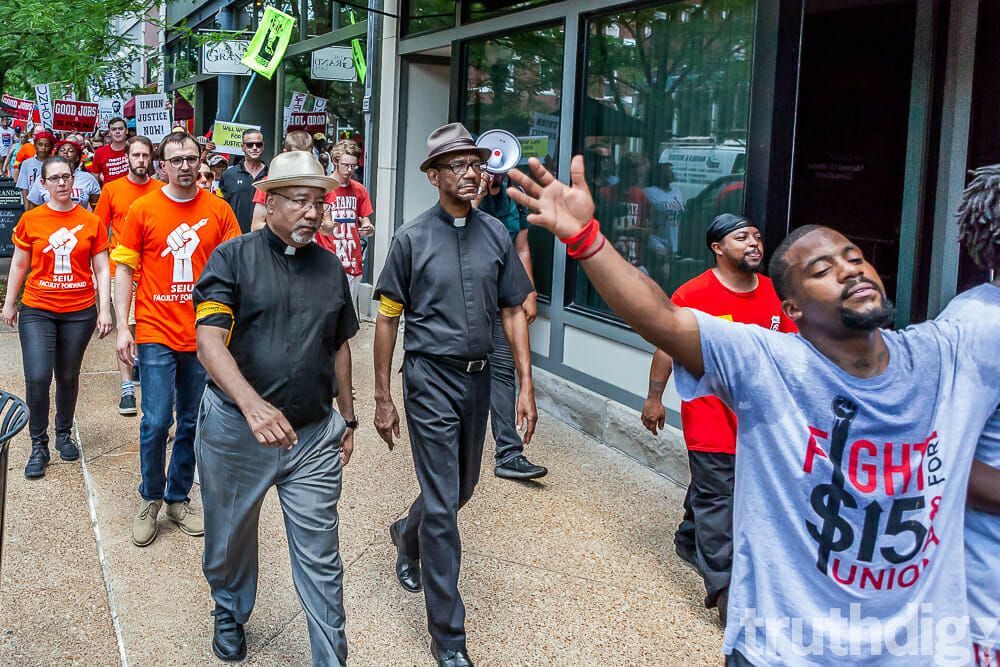
The Institute for Policy Studies and the Urban Institute conducted an audit of America for the Poor People’s Campaign. The resulting report showed that in many ways, Americans are worse off than they were in 1968. (Michael Nigro / Truthdig)
-
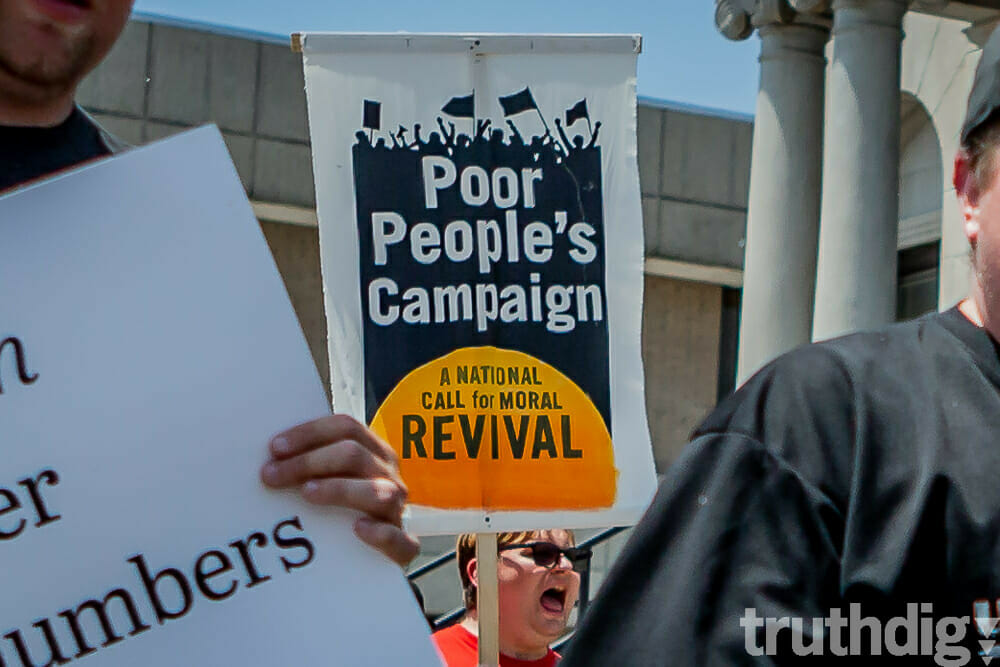
“You cannot change the narrative until you change the narrators. … We want people to know that our demands are rooted in legitimate discontent,” the Rev. William Barber said in Jefferson City. (Michael Nigro / Truthdig)
-
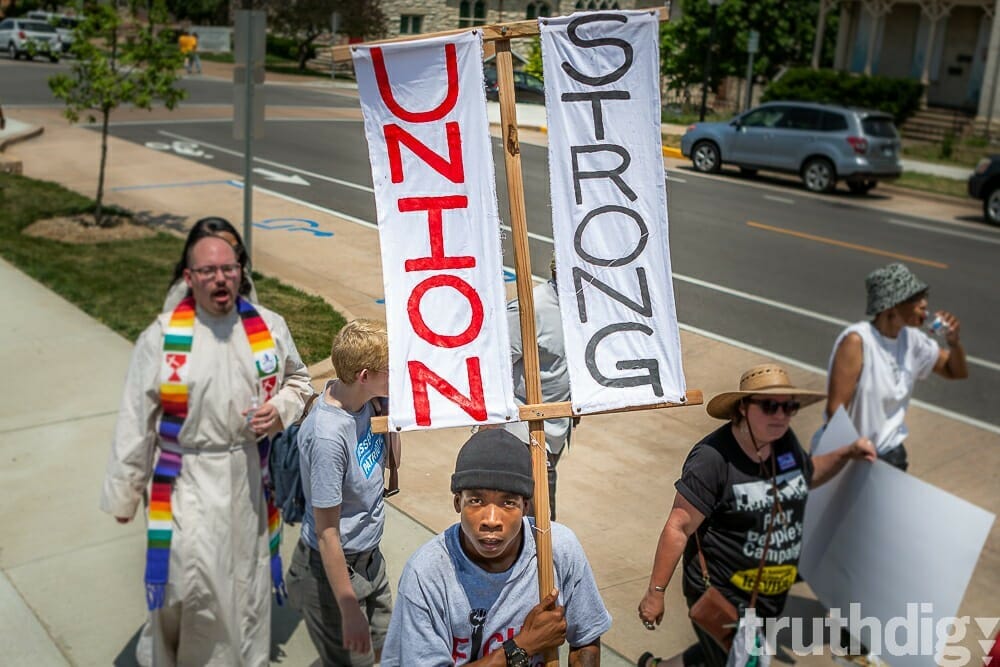
Fast-food workers often face eviction and homelessness because they cannot pay their rent, while such companies as McDonald’s pay their CEO millions of dollars every year. These marchers show their support for organized labor. (Michael Nigro / Truthdig)
-

This protest moved to the Missouri Chamber of Commerce. Though 75 percent of Missouri voters signaled their support two years ago for raising the minimum wage, members of the Chamber of Commerce reneged on a deal to do so. (Michael Nigro / Truthdig)
-

Protesters occupy the street outside the Chamber of Commerce. (Michael Nigro / Truthdig)
-
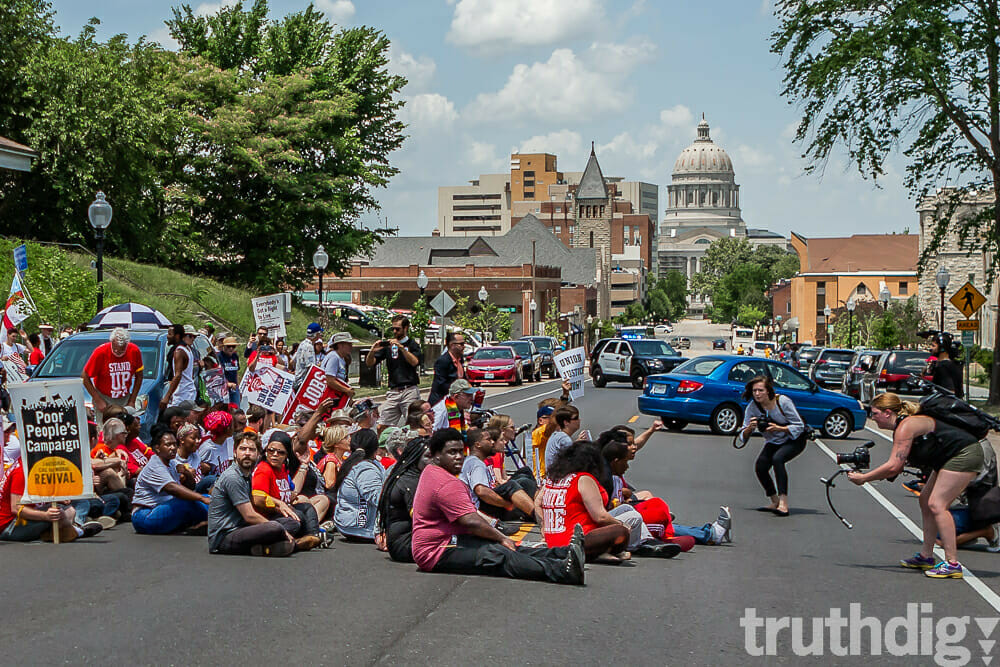
Journalists document the protest. In the background is the Missouri Capitol. (Michael Nigro / Truthdig)
-
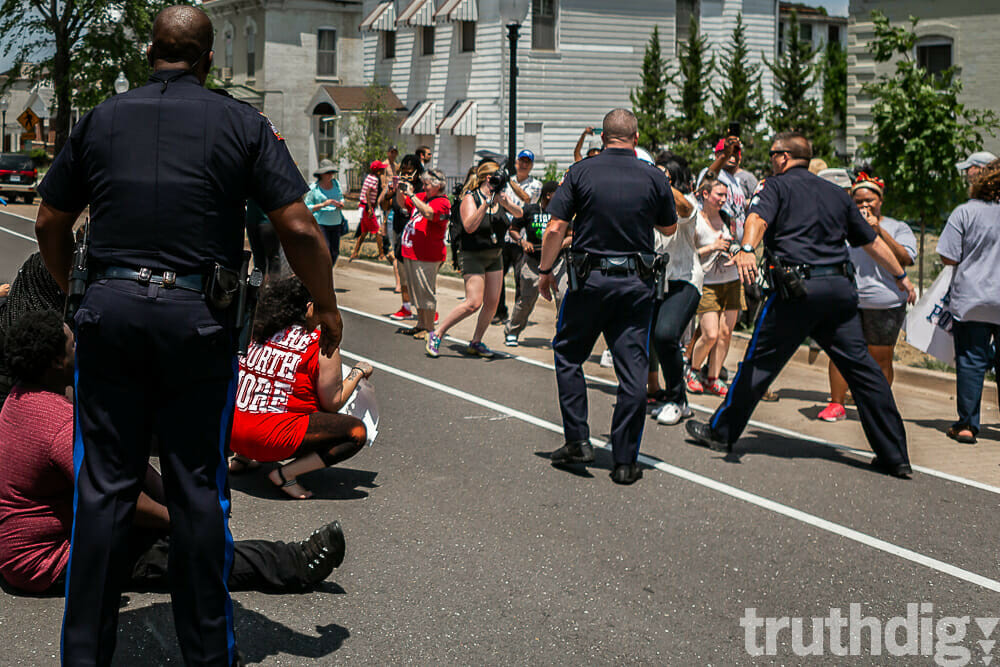
Those not wanting to risk arrest are moved into the parking lane and onto the sidewalk. (Michael Nigro / Truthdig)
-

Officer Williams heard my approach as I livestreamed the protest, spun around and asked me to move. I did not hesitate to move as he requested. (Michael Nigro / Truthdig)
-
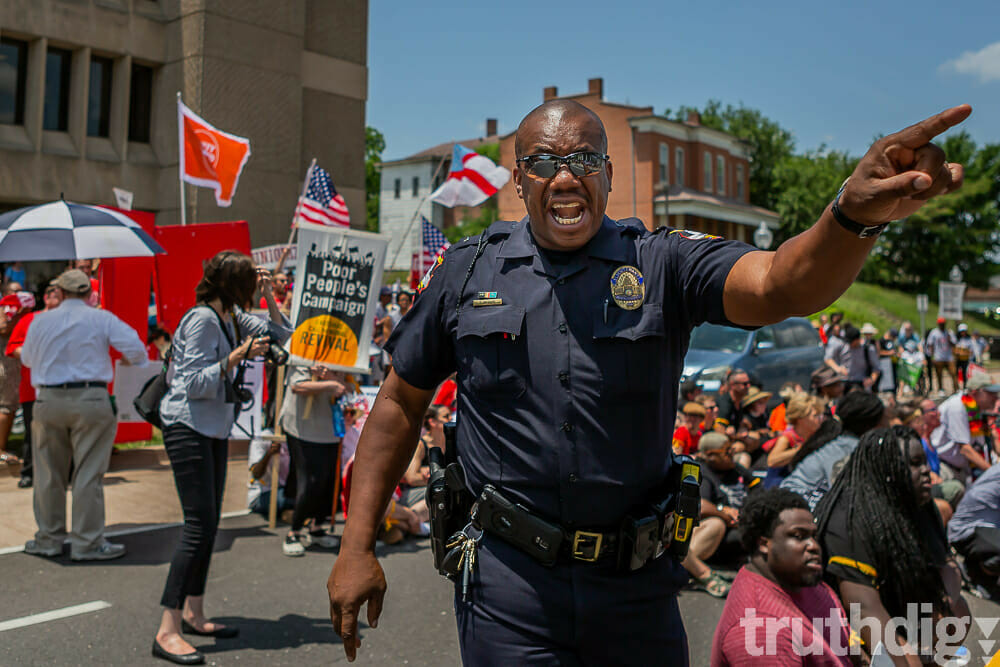
Although other journalists and photographers were on the scene and in the street at the time, I appear to have been singled out for arrest. (Michael Nigro / Truthdig)
-

Moments later, after I had moved away, I was arrested. (Michael Nigro / Truthdig)
-
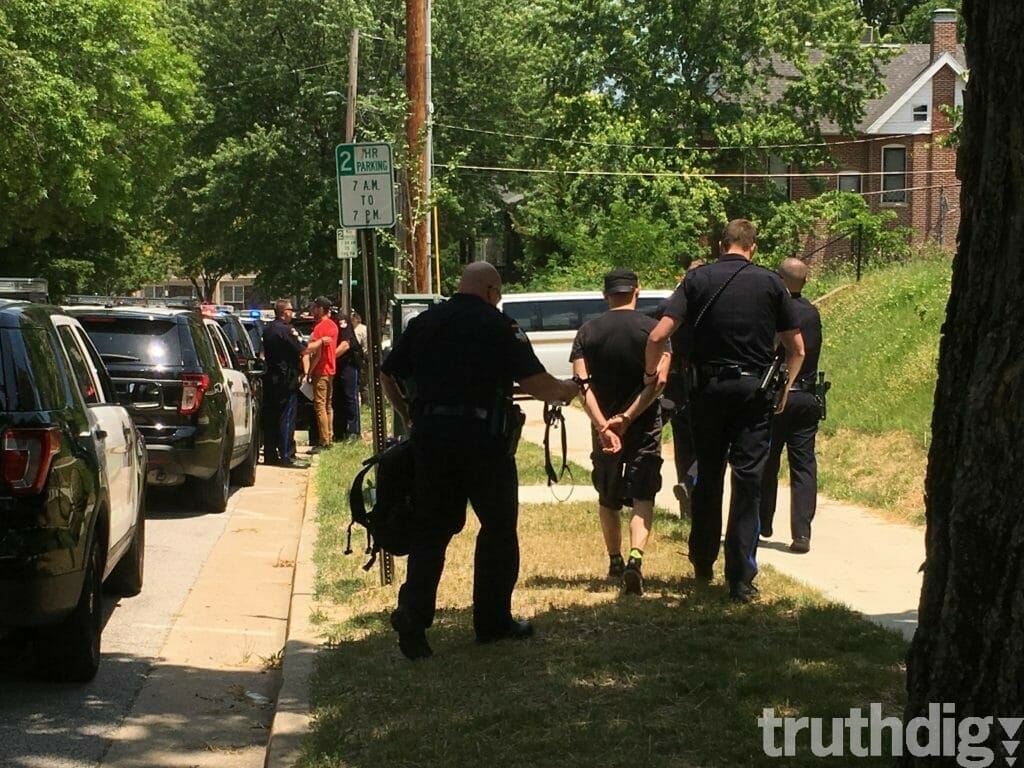
This photo was sent to me by a member of the Fight for $15 movement.
-
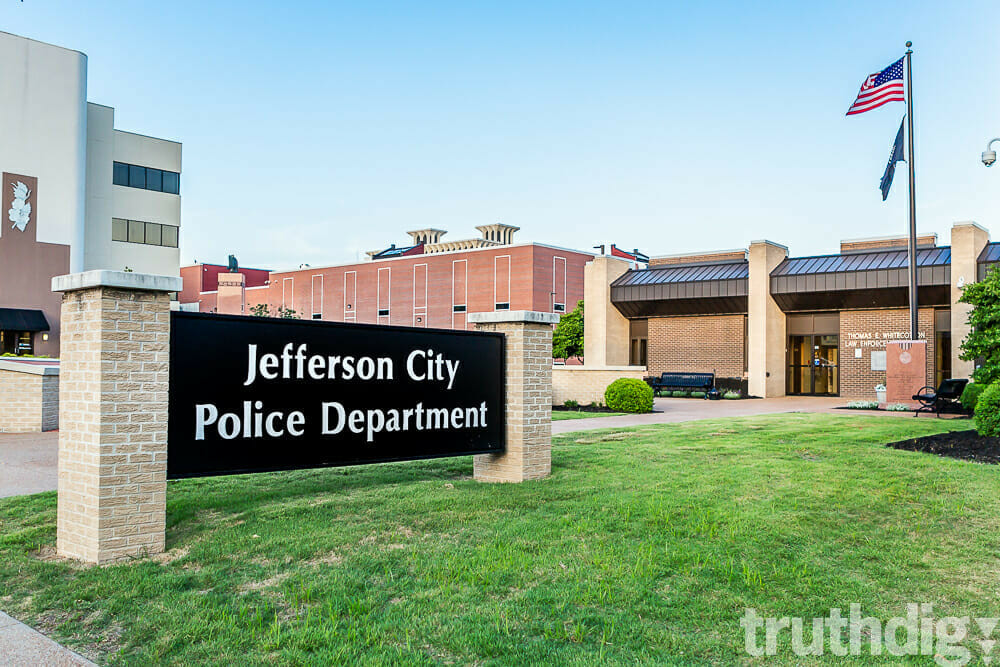
I was charged with “failure to obey orders,” the same charge that the 77 arrested protesters received. Legal observers negotiated in the streets with the police to “catch and release” all of the protesters, i.e., when the cops arrested them, they were walked to a car, at which point they presented their IDs and were given a ticket on the spot, and then they were let go. I was not so lucky. Unlike the protesters apprehended at Monday’s demonstration, I was arrested and handcuffed. But I contend that I committed, and was targeted for, an act of journalism. (Michael Nigro / Truthdig)